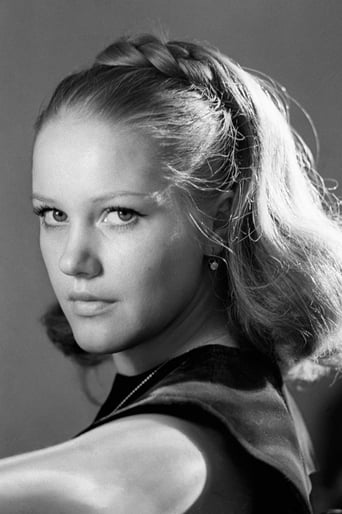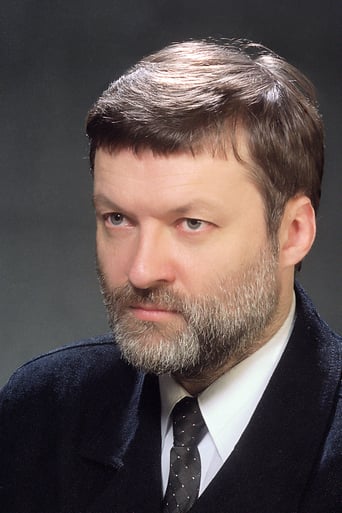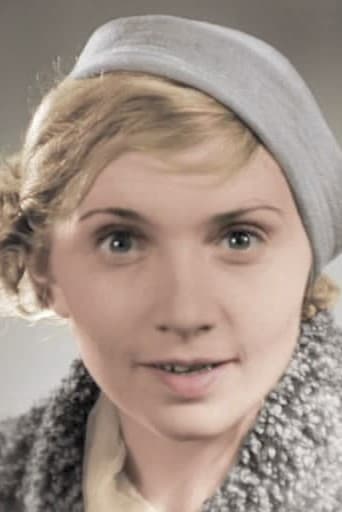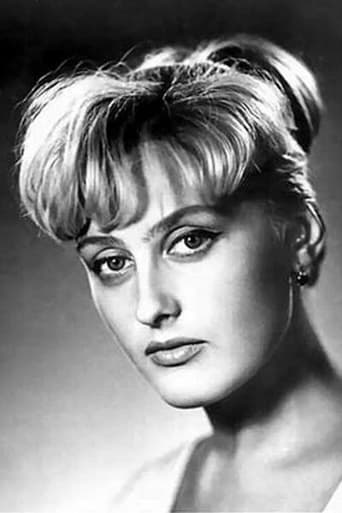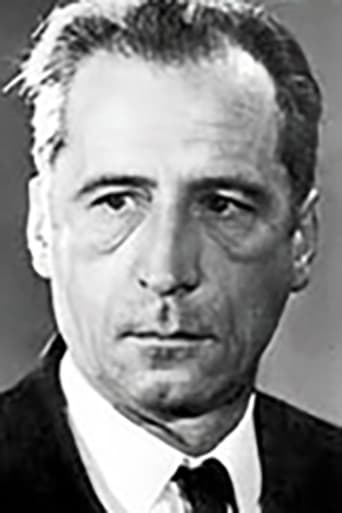BallWubba
Wow! What a bizarre film! Unfortunately the few funny moments there were were quite overshadowed by it's completely weird and random vibe throughout.
Siflutter
It's easily one of the freshest, sharpest and most enjoyable films of this year.
Frances Chung
Through painfully honest and emotional moments, the movie becomes irresistibly relatable
Bob
This is one of the best movies I’ve seen in a very long time. You have to go and see this on the big screen.
Kirpianuscus
after decades, the same force of seduction. nothing surprising because it remains one of the inspired adaptations of the fairy tale of Andersen and one of the good explanations for the high interest of Russian cinematography for it. the new elements - the presence of narrator as character of story, the impressive Snow Queen, the freshness of humor and crumbs of animation, the nice manner to drive a simple story as gift for the children of each age and the flavor of original text are virtues of a lovely trip in the essence of childhood.
Armand
it is not impressive. old special effects, crumbs of propaganda, minor changes of story, only few special scenes. but it has a great virtue - for many adults from East Europe, it remains a touching souvenir. and, after years, the emotions are not very different. same delicate /cold charm of Natalia Klimova as Snow Queen. same identification with Gerda of Elena Proklova or Kay of Slava Zjupa. the silhouette of Valeri Nikitenko as narrator and, sure, maybe, the flavor of language. it is a Christmas ornament. delicate, gentle, childish, shining. that is its secret. and explanation for who, after years and years, its charm is not lost.
sonnyschlaegel
There are two Russian adaptations of this fairy tale by Hans Christian Andersen, made within less than ten years, the animated version of 1957 and this live-action movie of 1966. The first version is nearer to the original tale most of the time. In the second version, some chapters have been left out. In the fourth chapter, much has been changed and much was added that is not in the tale. This version is apparently based on an adaptation (for the stage) by Yevgeni Shvarts (or "Yevgheny Schwartz"), which probably explains the higher number of changes.In both versions, a narrator has been added, in this version the fairy story teller Andersen, played by Valeri Nikitenko, in the older version a character from another tale by Hans Christian Andersen, Ole Luk-Oie. The end has also been changed more or less in both adaptations, and both leave out those parts of the story that (directly) have to do with Christianity, for example Gerda's prayer and the song lines "Roses bloom and cease to be / But we shall the Christ-child see". This is probably due to the fact that Russia was a communist country back then. But the core and the basic message of the story are there in both versions: Kay is robbed of his feelings and abducted by the Snow Queen to her palace in the far north. But without feelings a human being isn't really human any more. Gerda misses her best friend Kay and has to try to get to the Queen's palace and make his heart of ice become warm again. At this point the live-action version is nearer to the original than the animated version, which leaves out the Snow Queen's promise to Kay: if in "the icy game of reason" he manages to form the word "eternity" out of some pieces of ice "you shall be your own master, and I will give you the whole world and a new pair of skates". The outcome of this game is probably an important part of the message of the story - it probably means that pure reason, cold logic, can not lead to eternity - only love can.The adaptation for the screen makes a good impression overall, for example the actors' performances and the music by Nadezhda Simonyan. The special effects, though, are not very good, for example they inserted animated shots (which were not taken from the '57 version) in some sequences that would have been difficult to do as live-action.There are lots of adaptations of this story, animated and live-action, filmed stage adaptations, episodes from fairy tale series. I have seen one when I was a child, but which one was it? This one, or perhaps another one? It's too long ago to remember. But I remember that the story really impressed me. The Snow Queen gave me a proper scare. A woman who can turn a small boy's heart into a lump of ice. How easily one can become immersed in the imaginary world of a movie as a child. Everything seems to be practically as real as reality. Even if the special effects are bad. As an adult, one is not - unfortunately? luckily? - as easily impressed by a movie. But the Snow Queen in this adaptation, played by Natalya Klimova, is I think awe-inspiring enough for today's children also to be able to have an exciting time watching this movie. As to this I think the scene in which the Snow Queen is looking at Kay and Gerda through the window is particularly well done. Her white over-sized face makes her look like a menacing giant and her appearing is accompanied by dramatic music.Conclusion: I think it wouldn't have been a bad idea to stay closer to the original tale, and, as I've mentioned before, the special effects could have been better. And the robber girl's cute animated rabbits in the '57 version, which I haven't mentioned before, are of course missing from this version, there's only a female robber chief who looks like Brezhnev. Still I think that it is an all in all good adaptation of the fairy tale that will probably be fun to watch for children and that grown up fans of fairy tale movies will probably also like. Fans of animated movies will probably prefer the '57 version. I think it is about as good as the live-action version (7 out of 10 points for each). But the later version also includes the Snow Queen's promise to Kay (see above) and I liked the music better, so I think it's slightly preferable. Dosvidanye.
suchenwi
This pleasant Soviet fairy tale was fun to watch, and interesting in its use of special effects (up to splicing in some seconds of cartoon, when real action would have been too difficult, especially with flying animals). After I got it with SuperIllu magazine two days ago, I watched it twice, and enjoyed the second time around even more.One might say this is a story about strong women. Starting from Grandmother who runs the household well, Gerda who sets out heroically to rescue her little brother Kai, the princess who clearly dominates her husband as well as her father the King, the impressive robber queen and her very independent daughter.. up to the titular Snow Queen of course - they all command the scenes they are in, while men appear in weaker, sometimes clownish roles (my favorite was the Hitler caricature who lost all his clothes and boots in gambling). I could see no "communist propaganda" in this charming film. But if it contributed to more self-consciousness of girls and women in its time, I can only applaud - as a 53yo man who watched this 43 years after it came out. I enjoyed it and recommend it, if you like Russian fantasy movies, or are just curious about films from elsewhere than Hollywood.
